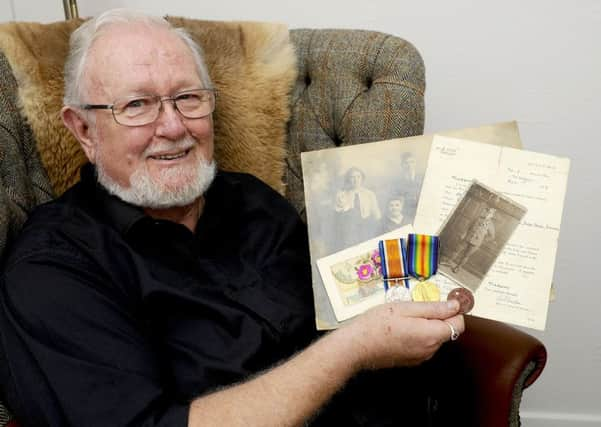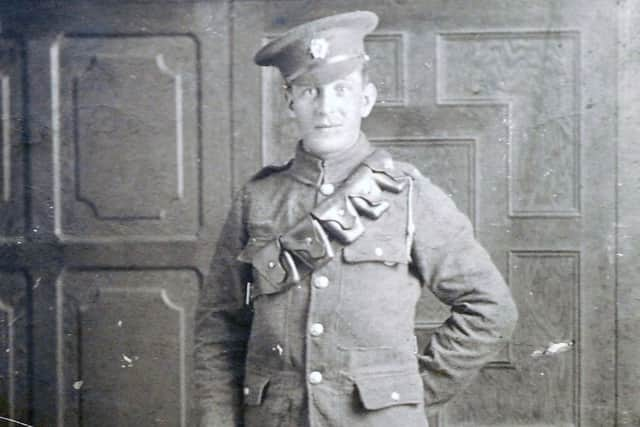The Falkirk horse soldier who died riding in the British elite cavalry


“It was a century ago, but the knowledge that the uncle I never met was killed, and did not even have a grave of his own, is just terrible”, he says.
He’s talking about local man Robert Stevenson, a victim off the Great War whose story - never told in any detail - is both harrowing and remarkable.
Advertisement
Hide AdAdvertisement
Hide Ad“He worked with horses, like so many in those days”, says David, “so he joined the Army Service Corps.”


He explains that this was no cushy behind-the-scenes number, far from the front.
Virtually all transport involved horses – the limited motor transport available was useless in the rough terrain of the front line – so ammunition supplies, in limbers or caissons, was taken directly from depots to artillery batteries.
Death from shellfire was an everyday occurrence, and, little publicised until recently. the death toll of horses on the Western Front was astronomic.
Advertisement
Hide AdAdvertisement
Hide AdHowever late in the war Robert, then aged 26, was mysteriously seconded to a cavalry regiment – the Essex Yeomanry.
It was a strange move, because the cavalry had been largely inactive since 1914, cooped up behind the front line waiting for a breakthrough that never came.
“Something changed at that point,” says David, “because it was then that Robert made out his will, leaving everything to his mother.”
The Essex troopers were brigaded with the crack 10th (Prince of Wales’ Own Royal) Hussars, and were on the move.
Advertisement
Hide AdAdvertisement
Hide AdIn a previous action they had lost 135 men to machine gun fire while trying to bound forward as “mounted infantry” to seize a position.
By October 1918 the Germans had fought and lost their last great offensive and the allies were closing in for the coup de grace.
David points out that Robert’s photograph shows him carrying cavalry carbine and ammunition bandolier, as well as a cavalry sabre.
Somewhere in that last great British surge, possibly linked to the Second Battle of Cambrai, he was killed.
Advertisement
Hide AdAdvertisement
Hide AdDavid speaks, with emotion, of a visit to Vis-en-Artois where, with so many other fallen, his sacrifice is recorded.
Sadly his was not the only family tragedy. Two other uncles, David and William, both died of the Spanish Flu pandemic – a global catastrophe which, incredibly, killed more people than had actually died in the war. It was a natural disaster overshadowed by the war, but caused devastation of a sort hardly witnessed since the Middle Ages.
William had served in the war too, and so his coffin was borne through Falkirk on a gun carriage in full military style.
Today, David Stevenson feels most strongly for the boys’ mother, whose world had collapsed.
Advertisement
Hide AdAdvertisement
Hide Ad“When you look at that family before the war, before all this tragedy, it is just heartbreaking”, he says.
“They were the very picture of happiness. They were a hard working family, and did not deserve such misery.”
As we approach the centenary of the Armistice he concludes: “They should not be forgotten.”